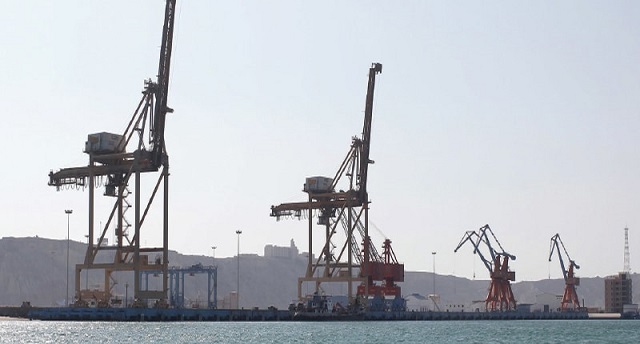April 24, 2020

To help Afghanistan maintain its food supply while coping up with the outbreak of the COVID19 pandemic, Pakistan has given the green signal on the import of bulk shipments of food items through Gwadar port for transit to Afghanistan. Due to the lockdown and the closure of the western border, more than 10,000 Afghan transit trade containers have been stranded at Karachi ports, awaiting clearance for border stations of Chaman and Torkham.
The Government has now provided a special permission to resume the handling of Afghan cargo at Gwadar port under the Afghanistan-Pakistan Transit Trade Agreement-2010 to help in early clearance and quicker transportation of sugar, wheat, and fertiliser to Afghanistan. Unlike containers, these cargoes are required to be transported in sealed trucks to Afghanistan. According to Razzak Dawood, Adviser to the Prime Minister on Commerce, import of 16,000 tonnes of DAP and the World Food Programme cargo of 500,000 tonnes wheat will be transiting through Pakistan for Afghanistan. These consignments will arrive next month.
Now, the cargoes coming from the Middle East will also have a shorter distance to the Gwadar port while ships from China would also offload at Gwadar. Operationalizing Gwadar Port has fulfilled the longstanding request of the business community and the shipping industry and has paved the way for generating business opportunities and employment in Gwadar as well as along highways. The move is expected to jump-start operations at Gwadar port and create the necessary eco-system for another big seaport of Pakistan.
Though, at this point it is not clear whether the operations for normal transit of cargo at Gwadar port are allowed. A senior customs official is reported as saying, “We have requested the Federal Board of Revenue to establish a transit office at Gwadar port,” adding so far no office was being established at the port.
At the moment, official data shows that more than 6,000 Afghan transit containers have been piled up at Karachi port in the wake of the border closure. Additionally, 2,000 containers have been stranded en-route after the border closure and lockdown due to the coronavirus outbreak while another 400 containers have been piled up at the Torkham border crossing and 1,600 containers at Chaman border crossing due to the border closure. On April 5, the government relaxed the opening of the border with Afghanistan by allowing transit goods for three days in a week. Earlier, on March 2, the Pak-Afghan border was closed for all types of movement, including cargo movement of exports and transit trade.








